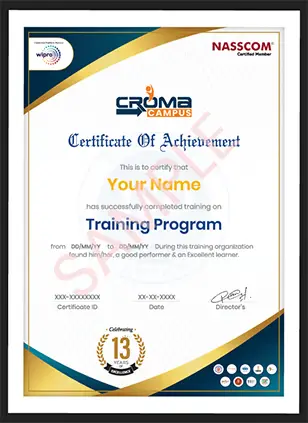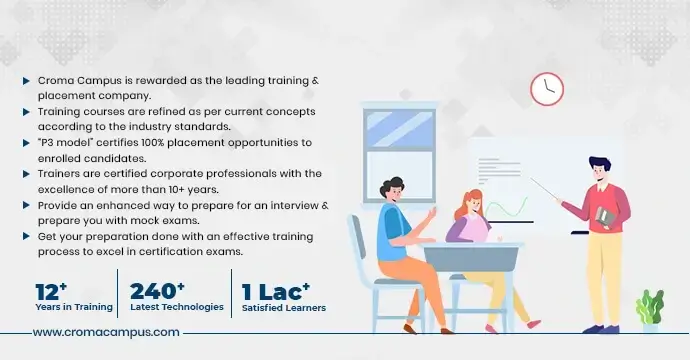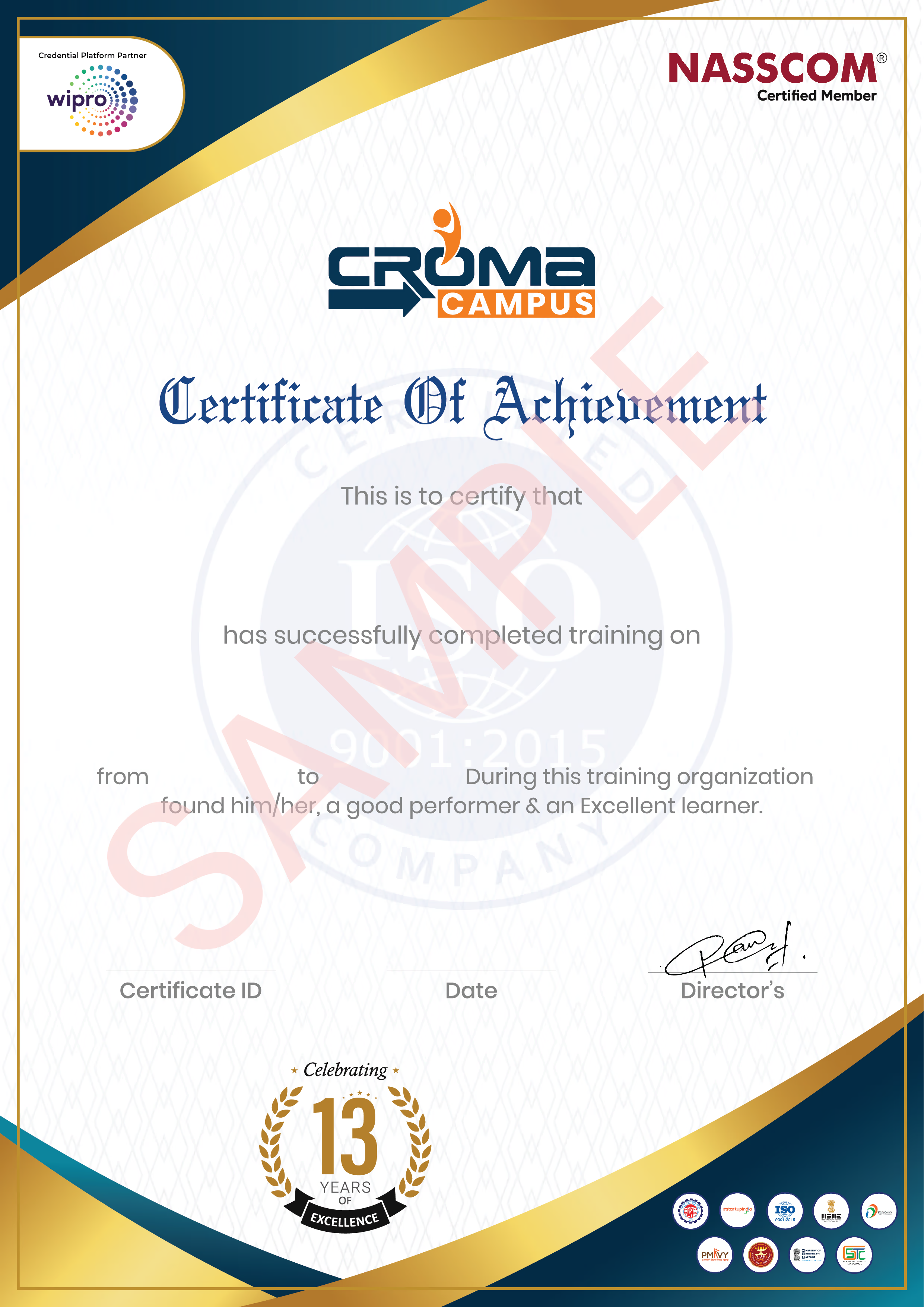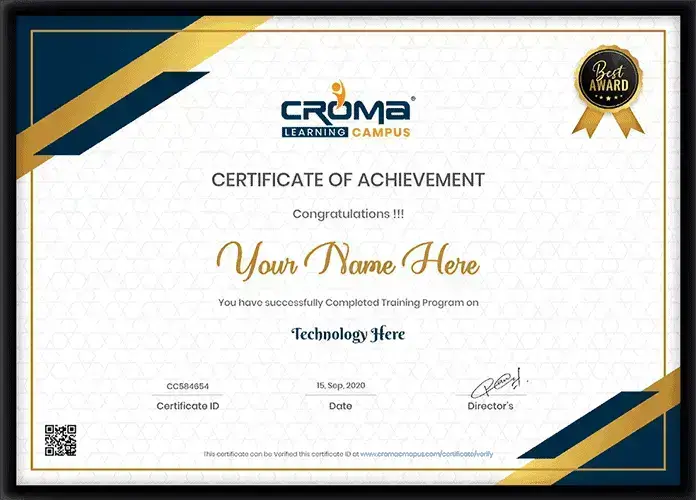- However, the Oracle Database gets managed by the global enterprises which manage as well as process the data worldwide. In case you have got a database then you dont need to know regarding any such detailed functionality. Companies that make use of Oracle Database belong to mid-size to the large-size organization. It is easy to find out Oracle DBAs in any industry for meeting the needs of database management. Resultantly demand Oracle DBA Online Training in India gaining acceleration.
- Oracle DBAs help out in organizing as well as storing data by using software solutions. Moreover, big corporations properly rely on the DBAs for handling their activity. Before pursuing the Oracle DBA Online Training, it is important to look out at the course curriculum;
Establishing & understanding the realms of database administration.
Applying the relational database model for understanding the hierarchies.
Understanding as well as applying our data libraries.
Implementing the database statistics for finding accurate results.
Creating & understanding the role of applications as well as servers.
Discussing & understanding the concepts of backup as well the recovery procedures.
Developing, maintaining & leading out Oracle Databases.
- Oracle Database Administrators with less than one year of experience in this domain can earn out into the range of Rs 3 lakh per annum. After completing the Oracle DBA Online course, they can earn up to the range of Rs 4.2 lakh per annum. According to the latest data mid-career Oracle database administrators can earn-out in the range of Rs 8.2 lakh.
- A career in the domain of Oracle Database administrator involves the multiple functions relate to customization & other tasks. Moreover, it helps out in maintaining the optimum performance of the databases. After completing the Oracle DBA Online Training in India, you can go to the below-mentioned domains:
If we talk regarding One Database Administrator then they require to perform a variety of responsibilities in their current responsibility. They need to install the latest version of Oracle for smooth functioning.
Oracle Database administrator also has responsibility related to handling out services which comes out throughout the customers. It also manages the load of software.
This comes out in the list of certifications which is for a junior level where the candidate comes out from schools and colleges. It also helps in designing systems to recover the data.
You have to involve in the updating & ensuring the latest version of the Oracle database system they get involved in installing and uninstalling the software.
Database administrator in the Oracle database always remains a high priority & key area related to the position. As per the market hype, the job of an oracle-based data administrator gets easily available.
- Whether you are working on the database solutions for fulfilling your business needs or going to fulfill our other requirements. Before enrolling in an Oracle DBA Online Training, it is important to get through the reasons for their popularity:
Oracle Database helps out in organizing, managing, securing, administering as well as protecting out data which gets based on your system.
In todays scenario businesses accumulate a huge amount of data and it becomes difficult to handle the databases. With the help of Oracle DBA handling out data becomes easy & effective.
There are multiple issues that can affect the performance of Oracle DBA. Moreover, after completing Oracle DBA Online Training in India you must be able to handle the bottlenecks involved in this system.
Many times, software developers interact with DBAs for avoiding the costly design structures & the modifications needed. Moreover, they must be familiar with the DB normalization.
A beginner DBA must understand the purpose of the services behind them. These get bound out by some functionalities extending out to the oracle.
- Undoubtedly, Oracle Database strikes the mind when we talk about the Database Management System. Moreover, it can offer you a much-highlighted career for the candidates. After completing the Oracle DBA Online Course, you have to perform the below-mentioned primary duties in an organization:
Administering as well as installing out the oracle databases.
Upgrading & downgrading out the oracle database solutions.
Preparing the RCA reports for increasing organizational revenue.
Good knowledge of handling multiple types of database-related errors.
Providing knowledge & exposure to different SQL servers is an asset.
- After completing the Oracle DBA Online training there are multiple companies that can easily hire. If we list out those organizations then these are TELUS International India, DCM Infotech Limited, Inspirisys Pvt Ltd, Vodafone India Services Pvt Ltd, Pathfinder solutions, Oracle, and others.
- As your Oracle DBA Online Course gets completed you get eligible to get a 100% internationally recognized certificate. Moreover, the certification helps out in climbing the ladder of success more easily. You can show this to potential employers.
- Related Courses to Oracle DBA Online Training
Why should you learn Oracle DBA?
By registering here, I agree to Croma Campus Terms & Conditions and Privacy Policy
 Course Duration
Course Duration
35 Hrs.
Flexible Batches For You
19-Apr-2025*
- Weekend
- SAT - SUN
- Mor | Aft | Eve - Slot
21-Apr-2025*
- Weekday
- MON - FRI
- Mor | Aft | Eve - Slot
16-Apr-2025*
- Weekday
- MON - FRI
- Mor | Aft | Eve - Slot
19-Apr-2025*
- Weekend
- SAT - SUN
- Mor | Aft | Eve - Slot
21-Apr-2025*
- Weekday
- MON - FRI
- Mor | Aft | Eve - Slot
16-Apr-2025*
- Weekday
- MON - FRI
- Mor | Aft | Eve - Slot
Course Price :
Timings Doesn't Suit You ?
We can set up a batch at your convenient time.
Program Core Credentials
Trainer Profiles
Industry Experts
Trained Students
10000+
Success Ratio
100%
Corporate Training
For India & Abroad
Job Assistance
100%
Batch Request
FOR QUERIES, FEEDBACK OR ASSISTANCE
Contact Croma Campus Learner Support
Best of support with us
CURRICULUM & PROJECTS
Oracle DBA Certification Training
- Architecture Overview
- SQL Fundamentals
- Installing Oracle 12c Database Server
- Creating Oracle Databases using DBCA
- Oracle Database Management Tools
- Oracle Database Files Management
- Database Storage Structure Management
- Database Instance Management
- Oracle Network Environment Configuration
- Administering User Security and Database Links
- Data Concurrency and Space Management
- Database Auditing Implementation in Oracle DBA 12c
- Backup and Recovery Concepts in Oracle DBA 12c
- Database Maintenance and Performance Basics
- ORACLE Multitenant Architecture
- Miscellaneous Concepts
- Placement Guide
- What are Databases
- Why do you need Databases
- Major Databases and Database Vendors
- Relational Databases
- The Oracle 12c RDBMS and related products
- Role and responsibilities of Oracle DBA
- Database and Instance
- Memory Structures – SGA, PGA
- Background Processes
- Server Processes
- Database Files
- Physical & Logical Structures
- Learn SQL SELECT Statement
- Restricting and Sorting Data
- Single-row and Multiple-row Functions
- Using Single-Row Functions to Customize Output
- Using Conversion Functions and Conditional Expressions
- Reporting Aggregated Data Using the Group Functions
- Introduction to Joins and its Types
- Displaying Data from Multiple Tables Using Joins
- Introduction to Subqueries, Single Row & Multiple Row Subqueries
- Using Subqueries to Solve Queries
- Using the SET Operators
- Using ORDER BY clause in set operations
- Introduction to DML (Data Manipulation Language)
- Managing Tables using DML statements
- Introduction to DDL (Data Definition Language)
- Introduction to Data Dictionary Views
- Introduction to Data Dictionary
- Describe the Data Dictionary Structure
- Using and querying the Data Dictionary views
- Overview of sequences, synonyms, indexes
- Creating Sequences, Synonyms, Indexes
- Introduction to Views
- Creating Views
- Managing Schema Objects
- Retrieving Data by Using Subqueries
- Controlling User Access
- Manipulating Data
- Managing Data in Different Time Zones
- Planning Your Installation
- Configuring Oracle Linux with Oracle RDBMS Pre-Install RPM
- Operating System Groups and Users
- Environment Variables
- Configuring the Oracle Software Owner Environment
- Using Oracle Universal Installer (OUI)
- Installation Option: Silent Mode
- System Requirements for Oracle Database
- Creating Operating System Groups and Users
- Types of Installations
- Planning the Database
- Creating Database
- Silent
- Command line
- Startup & Shutdown modes
- Starting & Stopping the database
- Read-only & Restricted modes
- Planning the Database Storage Structure
- Types of Databases (based on workload)
- Choosing the Appropriate Character Set
- Understanding How Character Sets are Used
- Setting the NLS_LANG Initialization Parameter
- Using the Database Configuration Assistant (DBCA)
- Introducing Oracle Database Management Tools
- Using SQL*Plus
- Using SQL Developer
- Logging in to Oracle Enterprise Manager Database Express
- Using the Enterprise Manager Database Express Home Page
- Understanding the Enterprise Manager Cloud Control Framework
- Using Enterprise Manager Cloud Control
- Initialization Parameters
- Static and Dynamic parameters
- Parameter Files
- Text & Server Parameter Files
- System & Session Level Parameters
- Changing Parameter values
- Tablespace and Data Files Concepts
- Blocks, Extents, Segments
- Understanding Space Management
- Creating & Managing Tablespaces
- Big file Tablespaces
- Tablespace Quotas
- Configuring Multi-Block Support
- Understanding Temporary Tablespaces
- Managing Temporary Tablespaces
- Temporary Tablespace Groups
- Managing Control Files
- Understanding Control Files
- Multiplexing Control Files
- Backing up Control Files
- Online & Archived Redo Log Files
- Managing Online Redo Log Files
- Fast Recovery Area (FRA)
- Configuring Database Archive mode
- OMF Concepts and Use
- File Naming Conventions using OMF
- Creating Tablespaces with OMF
- Learn about Data Storage
- Database Block contents
- Exploring database structure
- Create a new Tablespace
- Managing Tablespace
- Displaying Tablespace Data
- Using OMF
- Diagnostic files
- Automatic Diagnostic Repository (ADR)
- Viewing Diagnostic data
- Transactions and Undo Data
- Managing Undo data
- Storing Undo Information
- Creating Undo Tablespaces
- Comparing Undo Data and Redo Data
- Configuring Undo Retention
- Guaranteeing Undo Retention
- Changing an Undo tablespace to a Fixed Size
- Moving Data: General Architecture
- Oracle Data Pump
- SQL*Loader
- External Tables
- Initialization Parameter Files
- Starting an Oracle Database Instance
- Shutting Down an Oracle Database Instance
- Viewing Log Files
- Using Trace Files
- Using the Dynamic Performance Views
- Data Dictionary
- Oracle Net Services Overview
- Oracle Net Listener Overview
- Establishing Oracle Network Connections
- Connecting to a Server
- Tools for Configuring and Managing the Oracle Network
- Using the Listener Control Utility
- Using Oracle Net Configuration Assistant
- Using Oracle Net Manager
- Creating Users Accounts
- Account management
- Schema, Session, Killing Sessions
- Using profiles to implement complex passwords and resource limits
- Understanding Privileges
- Managing Privileges
- Understanding Roles
- Managing Roles
- Distributed Databases
- Creating Database Links
- Managing Database Links
- Overview of Locks
- Locking Mechanism
- Data Concurrency
- DML Locks
- Enqueue Mechanism
- Lock Conflicts
- Space Management Overview
- Block Space Management
- Row Chaining and Migration
- Free Space Management Within Segments
- Types of Segments
- Allocating Extents
- Allocating Space
- Creating Tables Without Segments
- Separation of Responsibilities
- Database Security
- Monitoring for Compliance
- Standard Database Auditing
- Unified Audit Data Trail
- Separation for Duties for Audit Administration
- Configuring the Audit Trail
- Specifying Audit Options
- Categories of Failures
- Flashback Technology
- Understanding Instance Recovery
- Phases of Instance Recovery
- Tuning Instance Recovery
- Using the MTTR Advisor
- Comparing Complete and Incomplete Recovery
- Oracle Data Protection Solutions
- Configuring for Recoverability
- Configuring the Fast Recovery Area
- Multiplexing the Control File
- Online Redo Log File
- Multiplexing the Online Redo Log File
- Archived Redo Log Files
- Archiver Process
- Archived Redo Log File Naming and Destinations
- Backup Solutions Overview
- Oracle Secure Backup (overview)
- User Managed Backup (overview)
- Backup Terminology and Types of Backups
- Using Recovery Manager (RMAN)
- Configuring Backup Settings
- Oracle-Suggested Backup
- Backing Up the Control File to a Trace File
- Data Recovery Advisor
- Loss of a Control File
- Loss of a Redo Log File
- Loss of a Datafile in NOARCHIVELOG Mode
- Loss of a Noncritical Datafile in ARCHIVELOG Mode
- Loss of a System-Critical Datafile in ARCHIVELOG Mode
- Database Maintenance (overview)
- Viewing the Alert History
- Terminology
- Automatic Workload Repository (AWR)
- Statistic Levels
- Automatic Database Diagnostic Monitor (ADDM)
- Advisory Framework
- Enterprise Manager and Advisors
- Performance Monitoring
- Tuning Activities
- Performance Planning
- Multitenant Architecture
- Pluggable Databases (PDB) & Container Database (CDB)
- Creating & Managing CDBs & PDBs
- Users, Roles, Privileges in CDB
- Parameters in CDB
- Backup, Recovery of CDBs & PDBs
- Oracle Flashback Technologies
- Flashback Database
- Flashback Table
- Flashback Drop Table
- Concepts of Logical backups & Refresh
- Data Pump Exports & Imports
- Concepts of Transportable Tablespaces
- Transporting Tablespaces across Databases
- Cloning Concepts and Considerations
- Cloning Techniques
- Cloning Oracle Home and Database
- Manual Cloning
- Cloning using RMAN
- Overview of Data Guard
- Benefits of Implementing Data Guard
- Standby Database Concepts
- Implementing Physical Standby database
- Patching Concepts
- Interim Patches, CPU, PSU patches
- Patch Sets
- Downloading & Analysing Patches
- Applying Patches
- Understanding the upgrade process
- Upgrade methods
- Upgrading Oracle11g to Oracle 12c
- Tips to clear an Interview
- Common Interview questions and answers
- Oracle DBA 12c Interview Questions and Answers
- Resume Building Guide
- Attempt for Oracle DBA Global Certification Exam
- Start applying for Job
- 0
+ More Lessons
Mock Interviews

Phone (For Voice Call):
+91-971 152 6942WhatsApp (For Call & Chat):
+919711526942SELF ASSESSMENT
Learn, Grow & Test your skill with Online Assessment Exam to
achieve your Certification Goals

FAQ's
A database administrator is responsible for maintaining, organizing, and handling organizational data.
- An ISO Certified.
- End-to-end personalized sessions.
- Personalized doubt clearing sessions.
It is a widely used enterprise application throughout organizations
Yes, the technology has huge potential to turn out the future scenario.
No, the job responsibilities can easily perform out.

- - Build an Impressive Resume
- - Get Tips from Trainer to Clear Interviews
- - Attend Mock-Up Interviews with Experts
- - Get Interviews & Get Hired
If yes, Register today and get impeccable Learning Solutions!

Training Features
Instructor-led Sessions
The most traditional way to learn with increased visibility,monitoring and control over learners with ease to learn at any time from internet-connected devices.
Real-life Case Studies
Case studies based on top industry frameworks help you to relate your learning with real-time based industry solutions.
Assignment
Adding the scope of improvement and fostering the analytical abilities and skills through the perfect piece of academic work.
Lifetime Access
Get Unlimited access of the course throughout the life providing the freedom to learn at your own pace.
24 x 7 Expert Support
With no limits to learn and in-depth vision from all-time available support to resolve all your queries related to the course.
Certification
Each certification associated with the program is affiliated with the top universities providing edge to gain epitome in the course.
Showcase your Course Completion Certificate to Recruiters
-
Training Certificate is Govern By 12 Global Associations.
-
Training Certificate is Powered by “Wipro DICE ID”
-
Training Certificate is Powered by "Verifiable Skill Credentials"








.webp)























 Master in Cloud Computing Training
Master in Cloud Computing Training